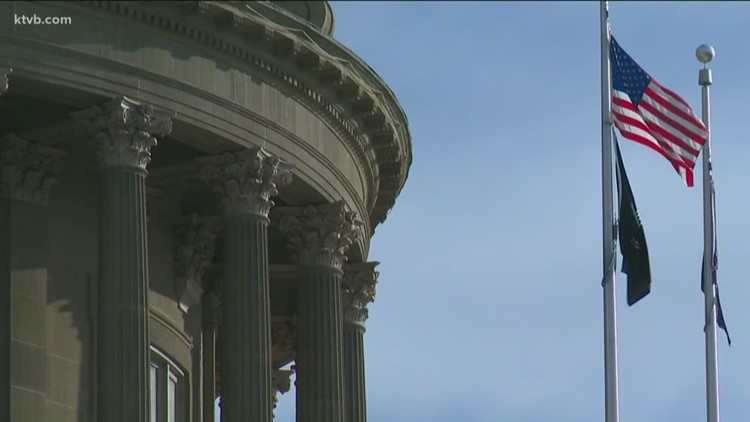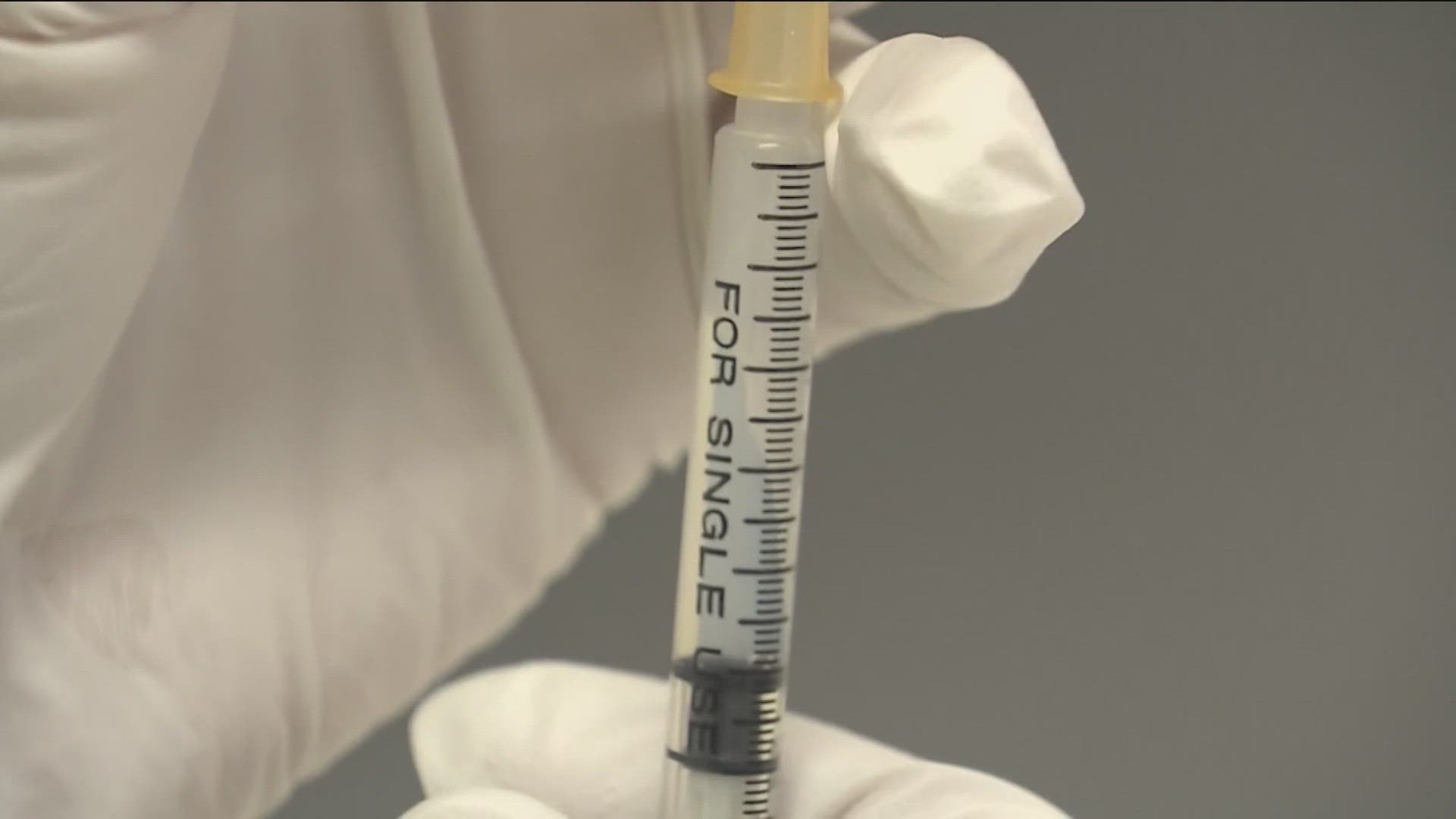BOISE, Idaho — Counter to arguments advanced by self-styled constitutionalists and even some Idaho elected officials that Gov. Brad Little’s statewide stay-home order for the coronavirus pandemic is somehow illegal or unconstitutional, legal experts say it’s nothing of the sort.
“This area of law has been well settled for approximately 200 years if not longer,” wrote Deputy Idaho Attorney General Brian Kane in a recent legal analysis, in response to questions from state legislators.
Concordia Law Professor McKay Cunningham teaches constitutional law to students in Boise, and he notes that Idaho state laws, the state Constitution and the U.S. Constitution all allow for such orders. “That’s just the kind of legal framework,” he said. “But there’s also legal historical precedent. Time after time, courts have upheld a state’s authority to enact and enforce a quarantine law, and that dates back at least to 1902.”
In 1902, the S.S. Brittania, a ship that was sailing from Italy across the Atlantic to New Orleans with 400 passengers, was refused permission to dock and have its passengers disembark, as a quarantine was in effect in parts of Louisiana. The ship’s owner sued, Cunningham said, and “all nine justices of the Supreme Court unanimously agreed that quarantines were an acceptable use of a state’s police power.”
Eventually, the ship had to head to Florida instead. These days, it’s cruise ships with passengers suffering from COVID-19 making such treks.
“A lot of what we’re seeing by the protesters, they’re arguing that the quarantine law is antithetical to the Constitution’s first three words, ‘We the people,’” Cunningham said. “But ‘we the people’ does not mean that every individual gets to do what every individual wants. … ‘We the people’ is effectuated by our representative government. Gov. Little was elected by ‘we the people,’” as were the lawmakers who passed Idaho’s laws regarding emergencies. “So the idea that the quarantine law is somehow not representative of the people, I think is misplaced,” he said.
A basic question is which is the proper sovereign, the proper government entity, to enact quarantine laws, Cunningham said. The 10th Amendment to the U.S. Constitution reserves police powers, which include quarantines, to the states. Then, the Idaho Constitution, in Article V, Section 5, gives the governor power to execute the laws. And Idaho’s state laws, in two sections of Title 46 of Idaho Code, specifically grant the governor emergency powers.
“The next question is: Well, what happens if that stay-at-home order infringes upon constitutional liberties?” Cunningham said. That’s a common argument among protesters, who say restrictions like closing a city playground violate the freedom to assemble or speak.
“You can read the whole 7,591 words of the Constitution and not one of them is the word ‘playground,’” Cunningham said. “You don’t have a constitutional right to have your child play at a playground.”
More commonly, people have pointed to freedom of religion to justify holding a worship service during a quarantine — but in other states, ministers have been cited for doing so and courts have upheld the actions.
“Does that infringe on a constitutional right? You bet,” Cunningham said. “Or the constitutional right to travel — has that been infringed upon by these quarantine laws? Yes. Or the right to assemble.”
But infringing on a constitutional right is different from violating it, he said. “Most people don’t like to admit it, but our fundamental rights are not absolute,” Cunningham said. “Everyone has heard of that saying, ‘You can’t cry fire in a crowded theater.’ You can’t defame someone and then try to defend the defamation lawsuit by saying you have free speech. You can’t perjure yourself in an open court and then claim that ‘I had free speech.’ You can’t claim that your religion requires heroin use in order to get you out of a drug possession charge. These civil liberties, these fundamental rights, are not absolute.”
“The government actually can infringe upon them in certain circumstances,” he said. In the hypothetical example of a pastor arrested for holding a religious ceremony, he said, “You ask yourself a constitutional framework of questions. First, is there a protected right here by the Constitution? And the answer is yes — free exercise of religion, First Amendment. Was it infringed upon by the government? Yes. But the third question is the one that people don’t typically ask: Does the government nevertheless have a legal justification?”
“Typically, that requires the government to show that it has a compelling government interest, in order to infringe upon one of our constitutional rights,” the professor said. “Is a pandemic and the attempt to avoid further spread of a pandemic a compelling government interest?”
COVID-19 has caused more than 185,000 deaths worldwide, he noted. “A third of the global population is on coronavirus lockdown. I think most citizens would say that the government does have a compelling interest in protecting the safety and the health of its citizens in the face of a global pandemic.”
And courts have agreed.
Kane, in his legal analysis, wrote, “Perhaps the most important element of these orders is that they are temporary. A declaration of emergency is only effective for 30 days. It can be extended, but whatever limitation on our rights is only temporary.”
“I understand that citizens are concerned with their constitutional rights of assembly and worship, but this authority is being exercised to stop the spread of a highly contagious and potentially fatal disease,” he wrote. “Although these temporary measures are inconvenient for us all, they are legally defensible. Historically within our nation, emergencies have included the temporary relinquishment of some constitutional protections.”
Just last month, a court in New Hampshire upheld a coronavirus emergency order from that state’s governor forbidding large gatherings of all types, and restricting restaurant food service to pick-up and delivery. Three residents sued, arguing, in part, that the order violated their rights to religious freedom and freedom of assembly. “Courts have long held that public health, safety and welfare constitute a significant government interest,” the court found, adding that the New Hampshire governor “has the authority to suspend or limit fundamental rights during a state of emergency.”
That ruling was issued on March 25.
Interestingly, Idaho’s state laws on emergency powers have a single carve-out: They don’t allow any abridgment of gun rights. Under both 46-601, the state’s law governing the authority of the governor in extreme emergency or martial law, and 46-1008, enumerating powers of the governor during disaster emergencies, there’s a near-identical clause. It reads:
“During the continuance of any state of disaster emergency, neither the governor nor any agency of any governmental entity or political subdivision of the state shall impose restrictions on the lawful possession, transfer, sale, transport, storage, display or use of firearms or ammunition.”
Little’s stay-home order exempted gun stores from the start; they’ve been considered “essential” and allowed to continue operating.
Said Cunningham, “Idaho is a state that has very strong gun possession history.”
If you enjoy reading articles like this one from our partners at the Idaho Press, please consider subscribing to them for newspaper delivery or digital access to help ensure stories like this are told.
More from our partner Idaho Press: Idaho could spend part of federal aid to help small businesses
Facts not fear: More on coronavirus
See our latest updates in our YouTube playlist:



